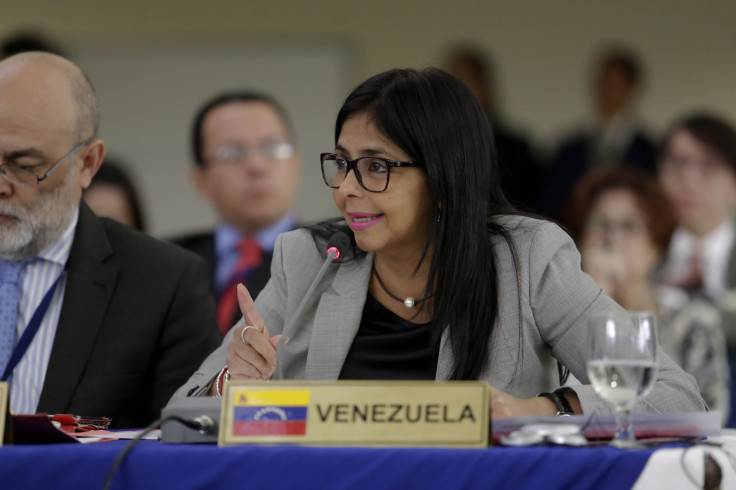
Venezuelan Vice President Delcy Rodríguez said Monday that the United States should focus its anti-narcotics operations on the Pacific Ocean rather than the Caribbean if its goal is to curb cocaine and fentanyl shipments entering the country.
Citing data from the United Nations and the U.S. Drug Enforcement Administration (DEA), she argued that most maritime drug trafficking routes to the U.S. pass through the Pacific, not Venezuelan waters.
"Venezuela is neither a producer of cocaine nor a significant route for its export," Rodríguez said at a press conference in Caracas reported by local news site Caraota Digital. "If there were any coordinated international efforts, the focus should be on the Pacific. If the real intention is to stop drugs from reaching the United States, that is where they should concentrate."
Rodríguez also criticized ongoing U.S. military operations in the Caribbean, where the Trump administration has deployed at least eight warships and roughly 4,000 troops as part of expanded counter-narcotics efforts.
The deployment follows a U.S. claim that it intercepted a vessel carrying drugs allegedly linked to the Venezuelan gang Tren de Aragua, which Caracas has disputed. Washington has said the buildup aims to disrupt Latin American cartels, while Venezuelan officials view it as a potential prelude to armed aggression.
"It would be much easier for the United States to combat and pursue money laundering within its own territory than to send ships to threaten a peaceful nation like Venezuela — unless its intentions are different," Rodríguez said, adding that 57% of suspicious fentanyl-related money laundering activities in the U.S. occur through traditional banking channels.
Rodríguez also rejected accusations from U.S. officials, including the DEA, that Venezuela plays a central role in the drug trade, calling such claims "one of the worst lies told about the country." "We hope these falsehoods end," Rodríguez said, urging Washington to "act seriously, responsibly, and in accordance with international law."
© 2025 Latin Times. All rights reserved. Do not reproduce without permission.






